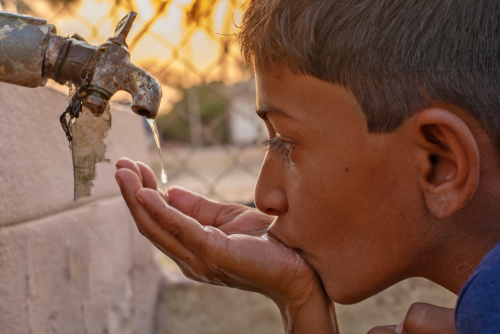
Researchers at the University of Maryland School of Medicine (UMSOM) are testing a vaccine to protect against serious diarrheal illnesses caused by food and water contaminated with bacteria like E. coli and Shigella.
Drs. Wilbur Chen and Eileen Barry will lead these tests, thanks to $4.5 million in funding provided under an agreement with global life sciences company Emergent BioSolutions. Chen is an associate professor of medicine and principal investigator on the study, while Barry is a professor of medicine and co-principal investigator. Together, the doctors hope to prove the efficacy of a vaccine to combat a cause of major diarrheal illness worldwide and child mortality. Testing under a Phase 1 clinical study could start as early as next year, according to Chen.
“The number one strain is rotavirus, for which we already have a vaccine developed and licensed for use in industrialized countries,” Chen told Homeland Preparedness News. “Shigella and ETEC aren’t addressed by vaccines, Chen said, referring to enterotoxigenic Escherichia coli. “There are no vaccines for them. With the $4.5 million Emergent has committed to, we’re going to be embarking on doing some initial clinical studies: a monovalent (prototype) vaccine, that will eventually become a multivalent vaccine.”
Dr. Kelly Lyn Warfield, vice president of Vaccines Research and Development at Emergent BioSolutions, said, “One of the ways Emergent furthers its mission – to protect and enhance life – is to invest in scientific research and development by organizations that are aligned with our focus on improving public health. As a leader in emerging infectious diseases and travel health vaccines, we are pleased to partner with UMSOM to advance a potential vaccine to protect against Shigella and ETEC, two leading causes of diarrhea worldwide.”
The World Health Organization estimates that the two types of bacteria are responsible for more than 15 percent of the approximately 500,000 deaths of children under the age of five worldwide. Even survivors of serious diarrheal illnesses can face a host of other issues, such as stunted growth and impaired physical and cognitive development.
“Our goal here is to develop a vaccine that can be delivered broadly to those who are most susceptible to the risks of these diseases,” Chen said. “This is something that can help serve the most vulnerable populations in low resource settings in sub-Sahara Africa and South Asia, where the disease burden is highest.”
The vaccine will be tested on a weakened live strain of Shigella, expressing a wide array of ETEC antigens, carefully created at UMSOM’s Center for Vaccine Development and Global Health (CVD) over the years. Tests will assess the vaccine’s safety, tolerability and optimal dose. This is the monovalent portion of the study, but if successful, it could move forward into a preclinical study of additional strains incorporated into the vaccine, something with the potential to make a more broadly protective vaccine.
But why these strains, specifically? Barry, who has been among the researchers optimizing the vaccine throughout its development, explained that this vaccine is based on studies – including genome analysis and pre-clinical testing – that identified the most important strains and antigens to target.
The development of additional vaccine components will be ongoing, thanks to the partnership with Emergent BioSolutions. Even beyond the funding agreement, the company will provide support to researchers and assistance on things like regulatory and application concerns, along with immunology assessments, Chen said.
“We know that diarrheal diseases are a leading cause of mortality for children,” Dr. Kathleen Neuzil, director of the CVD and professor of medicine and pediatrics, said. “This research at the Center for Vaccine Development and Global Health is a critical step in helping to protect the most vulnerable children worldwide. Our expertise in clinical trials will help set the stage toward final delivery of an important vaccine that could impact millions.”




